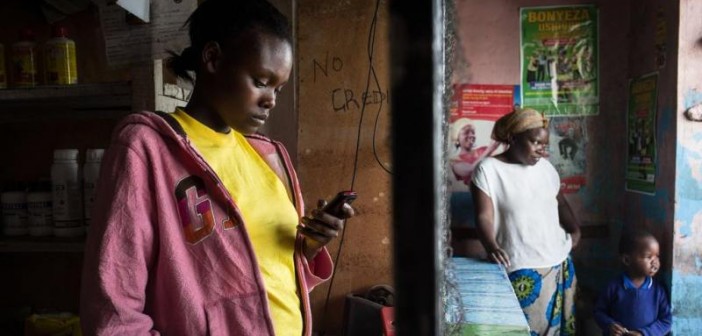


Mobile money is not just a product, but a way of life in Africa. Africans buy everything from vegetables to plane tickets, pay bills, pay merchants and manage international remittances using mobile wallet platforms. Vinay Solanki, Global Head (DGM), Airtel Money, and a graduate of IIM A’s One Year Full Time MBA (PGPX), Class of 2015 shares his insights into the category from working on it as Global Head of Airtel Money.
Mobile money was launched by SafariCom when they realized that people use talk-time as a barter for payments. Me2You service was used to repay debt in the form of talk-time. Safari and Vodafone realized the need and joined hands to form VodaCom and launched M-Pesa.
It became an instant hit because using mobile wallets provided a cheaper alternative compared to using full fledged banks. Penetration of banks in Africa is low and maintaining a bank account is expensive. Unlike India, even checking your account balance is charged at banks and high minimum balance criteria affect its adoption among daily wage earners and low income groups.
Safety concerns are a big driver of mobile payments as mugging is common in Africa.
Mobile money penetration and success got a fillip with increased mobile usage, reduction in calling rates and reduction in handset prices.
Unlike India, even checking your balance is charged at banks which make it an unpopular among daily wage earners and low income groups
Availability of cheap second hand phones also helped spread the deep penetration of mobile money in Kenya and other countries in the African continent like a forest fire.
Gradually moving from the basic P2P (Person to Person), P2B (Person to Bank) and talk time topups, operators and service providers started building large merchant network such as multi brand retail stores (NakuMatt), car service provider, construction contractors and so on to expand the usage of mobile money.
The basic idea they followed is to on-board the entire ecosystem to increase speed of adoption. For example to get the labor class to use mobile money they on-boarded contractors, labor organizations, unions and suppliers.
 Looping in the Government organization to disburse salary through mobile wallet was a smart move to increase the penetration. For example civil servant employees of an entire country receive their money through mobile wallet. Cable TV providers accept payment through mobile wallet and I saw in Kenya that you can even book a plane ticket using mobile payment.
Looping in the Government organization to disburse salary through mobile wallet was a smart move to increase the penetration. For example civil servant employees of an entire country receive their money through mobile wallet. Cable TV providers accept payment through mobile wallet and I saw in Kenya that you can even book a plane ticket using mobile payment.
I see lot of innovations in this area, where service providers have enabled cross border or international money transfer to compete with MoneyGram and WesternUnion, which are very expensive routes of cross border remittances. The mobile wallet based transfer could revolutionize the remittance industry.
NFC (near field communication) enabled cards have also been launched recently, which are linked to the mobile wallet and can be tapped to the receiver to pay quickly by just entering a PIN number. Time will tell whether this can be successful medium as currently few merchants wish to upgrade to NFC based payment collection option.
GSW (group saving wallets) in the region where not everyone can afford to own a mobile or are educated enough to carry out cash-out and cash-in transactions, is an attractive proposition. It is quite like cooperative banks in India, where there are signatories who are responsible to carry out transaction on the community’s behalf.
Micro loans to the needy or people at the bottom of the pyramid is fast catching up, where by companies that wish to offer loans are tying up with mobile operators to leverage their distribution network through mobile wallets. These companies are building customer credit scores using their GSM usage data, social media footprint, mobile money history and few other information. I have seen loan value as low as $1 is offered in Africa with interest rate ranging from 11% a month to 17% a week through this service. I see a huge potential for such services in India through mobile wallet or payment banks route.
Mobile payments, wallets and transactions could possibly replace every other form of payment and become a way of life for business transactions.
In the next article I will focus on fraud and risk scenarios associated with open wallet and what are possible ways to manage them. (Cover image courtesy twimg)
Vinay Solanki is Global Head, Airtel Money RAFM (Deputy General Manager, Finance). Vinay graduated with an MBA (PGPX) from IIM Ahmedabad in 2015.